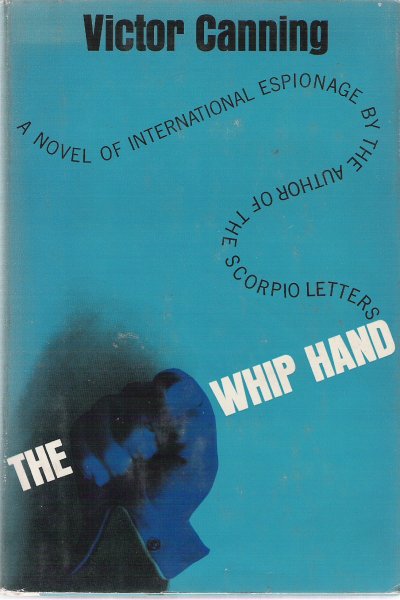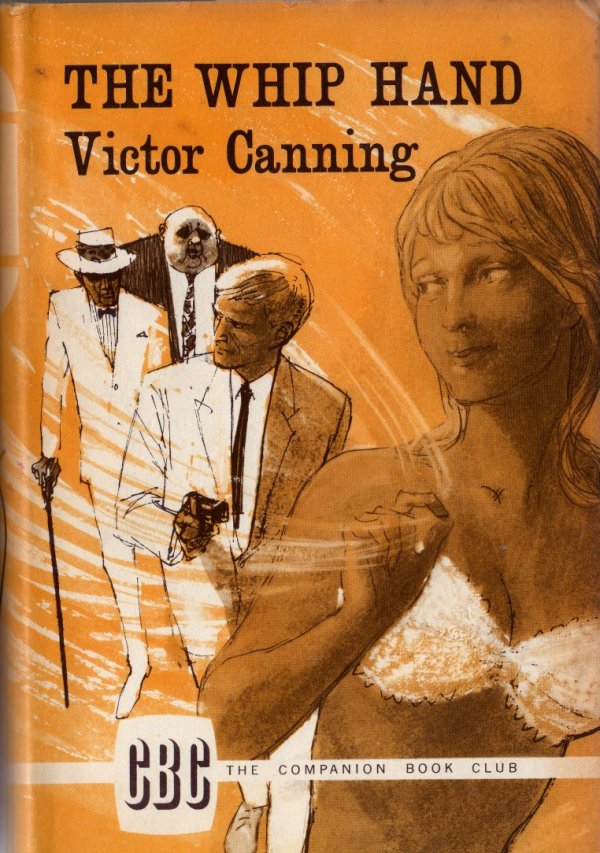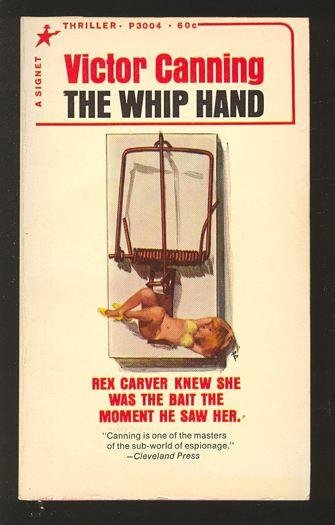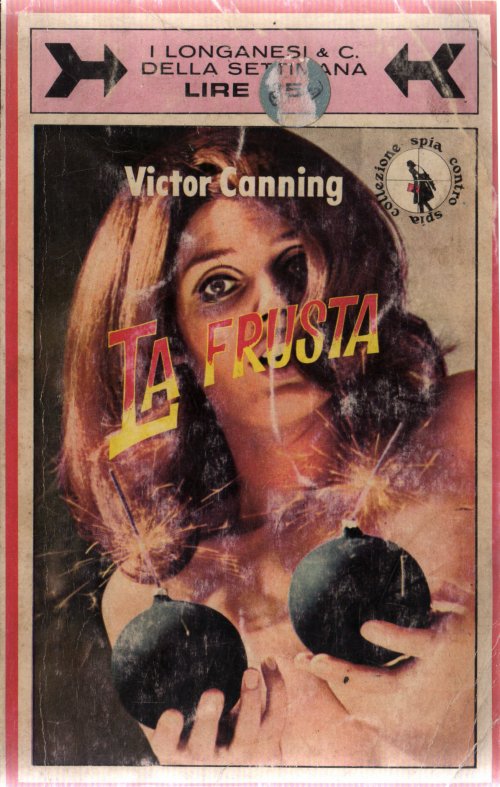
Heinemann first edition

US first edition

Companion Book Club 1965

Pan paperback 1967

Heinemann uniform
edition 1971

Pan paperback 1971

US paperback
 Heinemann first edition |
 US first edition |
 Companion Book Club 1965 |
 Pan paperback 1967 |
 Heinemann uniform edition 1971 |
 Pan paperback 1971 |
 US paperback |
 New edition 2011 |
 Danish translation |
 Italian translation 1968 |
 Russian translation 1998 |
 Audio Book |
 A Rex Carver Companion available from Lulu.com |
The BookRex Carver is a private detective who never touches divorce, with an office in Holborn staffed by his secretary and working partner Hilda Wilkins. (Wilkins is not his sexual partner, being engaged to a Swedish Suez Canal pilot called variously Harvald and in a later book Olaf.) Carver bets on horses and drinks and smokes heavily, but keeps fit by working out at Miggs's gymnasium. Occasionally he is cajoled or blackmailed into working for the Secret Service by Manston (the hero of an earlier book, The Limbo Line in which Carver does not appear) and Manston's unpleasant boss Sutcliffe. This book begins with a commission to find a missing girl in Brighton, continues with Carver pursuing her to Paris, Dubrovnik, Venice and Germany, where he finds out whose bride she is intended to be. There is a large cast of characters with conflicting and changing allegiances. Nobody can be taken at face value. The progress around various European tourist spots is frantic and it is unrealistically easy to make travel bookings, a feature that Canning had already satirised in his essay, "The Trouble with Heroes" in Suspense magazine (included in the Rex Carver Companion). The final scene is a magnificent set piece which would make a splendid cinema climax. This may be how Canning thought of it, and he can count himself unlucky that nobody made the film and his work in that genre was eclipsed by the success of the James Bond franchise. One thing that has changed markedly from Canning's earlier books is the hero's attitude to women and sex. In the previous thrillers the hero has had to rescue, or sometimes be rescued by, a heroine he has just met. There is mutual attraction, but nothing more than chaste kissing can occur before the marriage that we assume follows the ending of the book. A consequence of this is that the pairing is "used up" for plot purposes. It would be too much of a coincidence if that heroine again required rescuing from evil villains. One innovation of Ian Fleming's which Canning now adopts is the re-usable hero, prepared to bed the girl and then discard her in time for the next book. The moral code that Canning wrote by did not allow such behaviour before this book, and even now there is a certain delicacy observed. Carver does not contemplate bedding a girl unless he is "falling in love with her". Lust is not enough. Often a pair are heading towards copulation when there is a handy interruption. By such means the author keeps Carver out of the wedding trap which has caught his previous heroes, although he does allow a month of out-of-wedlock passion during Carver's convalescence at the end of this story, and the girl in question does not reappear in any later Carver book. The Observer review commented that "Canning has toughened up". Carver's sexual morals become even freer in the later stories in the series, and he chalks up two or three bedroom encounters per book. The writing is characterised by rather slick, occasionally plaintive, comments, such as: "... Beyond the law, you could go deeper still, deep and dark, down below the anemone and coral line where the big security sharks lurked. Down there they've never heard of friendship. Some of them screened their own wives before they kissed them goodnight." (Page 9) "It's the early worm that catches the bird." Said to a fisherman when Carver has just chatted up Katerina on Brighton Pier. (Page 17) and the final paragraph:"What did I learn? ... that there's an office waiting, clients being clever with you, and two roads running away north and south, and that you've got to be honest and take your own road because somewhere at the end of it—with luck—there might be the thing you really want. Or am I just kidding myself? Probably." |
|

The Albion Hotel and Brighton Pier where Carver finds Katerina Saxmann. The same hotel figures in Doubled in Diamonds.